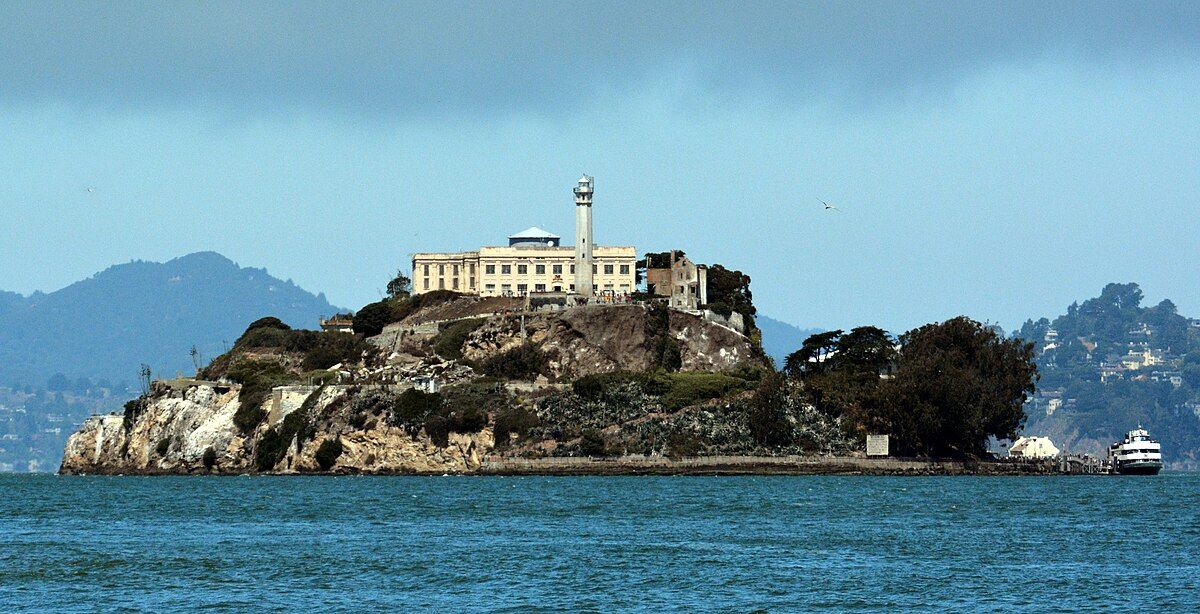Alcatraz Is a PR Stunt—but the Danger Is Real
Stunt indicates a push from Federal officials to reopen California prisons

The head of the current US Presidential administration made a predictably outlandish statement about directing the Federal Bureau of Prisons to rebuild and reopen the infamous Alcatraz prison in the San Francisco Bay. Closed in 1963, it was deemed too expensive to continue operating, according to the Federal Bureau of Prisons, in large part due to its island location. It was nearly three times more costly to operate than any other federal prison, the BOP website said.
Nancy Pelosi, former House speaker and Democratic lawmaker from California serving San Francisco, downplayed the Republican President's plan. "The President’s proposal is not a serious one."
She's right in one sense, yet the threat of presented by re-opening old prison sites is very much real and indicative of policies that seek to return California to the era of mass incarceration.
The following statement was released by Californians United for a Responsible Budget (CURB), in response to a statement made by the head of the current US Presidential administration concerning the re-opening of Alcatraz.
*****
Trump’s recent comments about reopening Alcatraz have sparked concern, but California advocates say the real threat isn’t on the island—it’s across the state.
“Yes, we should take him seriously,” said Tannah Oppliger, an organizer and policy advocate with Californians United for a Responsible Budget (CURB), a coalition of more than 100 organizations committed to reducing incarceration and redirecting resources toward community care. “But while the spotlight is on Alcatraz, the risk of ICE quietly reactivating closed prisons like FCI Dublin is going unnoticed.”
ICE has already toured FCI Dublin, a federal women’s prison recently closed after a national scandal involving systemic sexual abuse by staff.
Closed facilities like Chuckawalla Valley State Prison (Blythe) remain in “warm shutdown”—technically closed but still funded, staffed, and maintained, leaving them open to federal reactivation. Since 2021, Governor Newsom and the Legislature have supported prison downsizing across the state: closing three state prisons, ending a private prison lease, and shuttering multiple yards and standalone properties. These efforts are projected to save California nearly $900 million each year.
But without full closures, these sites remain vulnerable to ICE and continue to drain public funds. The state has already spent more than $300 million maintaining non-operational prisons, including $146 million at Deuel Vocational Institution, $87 million at California Correctional Center, and $81 million at California City in just three months after lease termination.
“This is the moment to shut the door permanently,” said Dax Proctor, CURB’s Statewide Coordinator. “Every prison left half-open is one more opportunity for ICE to walk in.”
While some have dismissed Trump’s Alcatraz remarks, advocates emphasize that his most extreme ideas often obscure real policy threats. “We’ve seen this before—he floats something outrageous to dominate the narrative, then quietly moves forward while attention is elsewhere,” continued Proctor.
Alcatraz itself should be a logistical non-starter: no drinking water, no utilities, no infrastructure, and a capacity of just a few hundred beds. Experts estimate it would cost up to $1 billion to make the site operational, while Trump has promised deportation campaigns targeting tens of thousands.
“The people working to fully close prisons and keep ICE out are protecting California’s future,” Proctor continued. “Lawmakers who sustain warm shutdowns are inadvertently creating the conditions for federal abuse.”
Advocates are calling on state leaders to resist any federal expansion of migrant detention, permanently shutter closed prisons, and redirect billions in saved spending to housing, healthcare, and education––areas already threatened by federal budget cuts.
“Ending warm shutdowns and refusing to let the federal government build or take over prisons in our state is one of the clearest ways California can resist this administration,” said Proctor.
*****
Californians United for a Responsible Budget (CURB) is a Black-led statewide coalition of more than 80 grassroots organizations. The organization's three-point mission is to reduce the number of incarcerated people in California; reduce the number of prison and jails in our state; and shift wasteful spending away from incarceration and toward healthy community investments.










